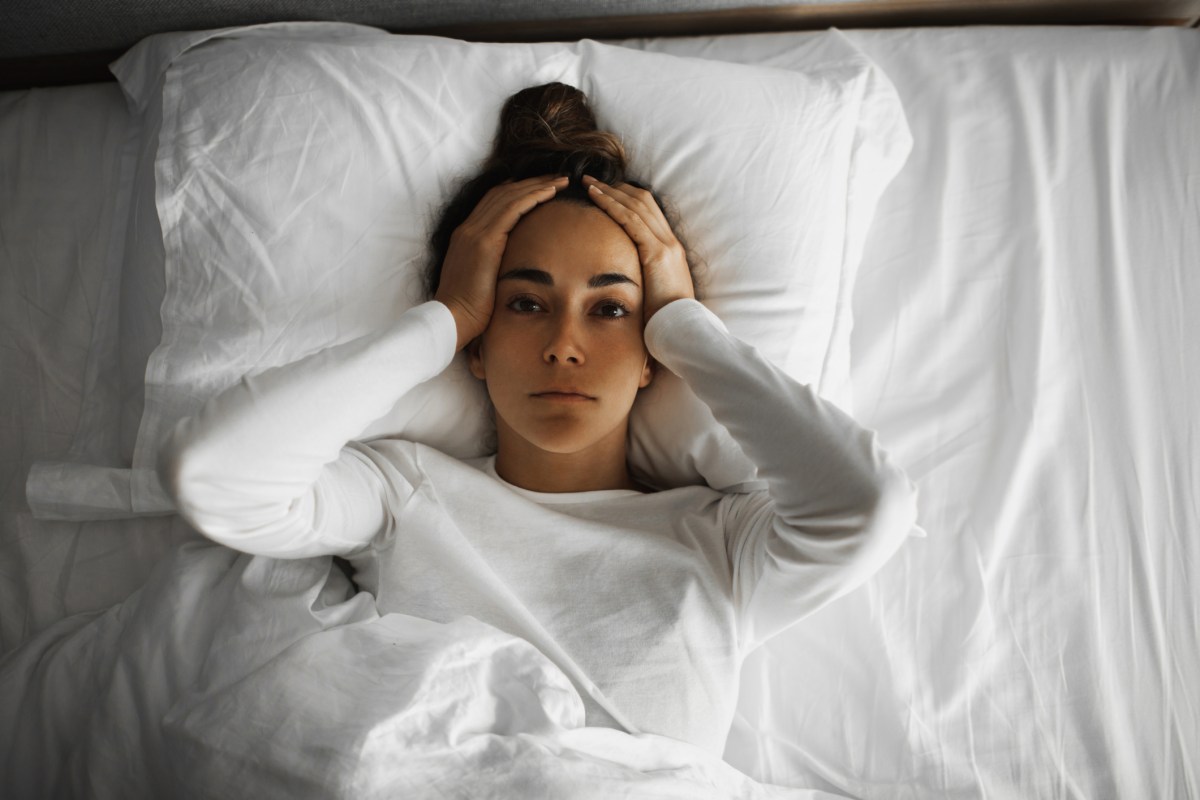Given the fast pace of our world, it’s likely that you’re feeling tired right now, and the fact that we are knee-deep in blustery cold weather doesn’t help. Juggling the demands of work, family, friends, and the endless stream of shocking news can make getting enough rest feel like an uphill battle. And if you’re raising a child, that challenge probably multiplies about tenfold.
It also doesn’t make things any easier that sleep is one of those elusive self-care and health practices that we think we can forgo. Yet, we wouldn’t start smoking and think it wouldn’t affect our health, or stop giving our kids healthy, nutrient-packed food and feed them fast food for every meal.
The truth is we are walking around sleep-deprived, and putting ourselves at risk for high blood pressure, diabetes, cardiovascular disease, and obesity, as well as depression, moodiness, and brain fog.
Dr. Sanam Hafeez, a New York-based neuropsychologist and founder of Comprehend the Mind says “not only are people unaware of why they are suffering from insomnia or not getting quality sleep, but they are unaware of the effects this has on their health, daily functions, and brain.” Dr. Hafeez explains that a large part of insomnia is a result of poor sleep hygiene and offers a glimpse into behaviors that could be causing a decline in your sleep quality:
Working Out Too Late
Working out can help de-stress the body and reduce anxiety. However, “if done too close to your bedtime your body might still feel the adrenaline and pump of the workout and it might be difficult to fall into a sedative state,” says Dr. Hafeez.
Caffeine or Nicotine Too Close to Bedtime
“Nicotine is a stimulant and it is well known to cause insomnia. Depending on how your body processes nicotine you could be putting yourself at risk for low-quality sleep which means a lack of REM sleep,” warns Dr. Hafeez. This stage of sleep is where we recharge the most throughout the night.
In other cases, people unassumingly snack on chocolate or have a soft drink that contains caffeine, and that caffeine will keep you in a state of alert and it will be more noticeable that you are alert as you stare at the roof without any other activity.
Using Your Bed for More Than Just Bed Stuff
Your bed should mostly be reserved for sleeping and spending intimate time with a partner. This is because, “the brain has a hard time adjusting to sleep mode if it gets used to being on the bed all the time, eating, watching TV, studying, or just hanging out. You’ll have a harder time shifting into actual ‘bedtime,’” explains Dr. Hafeez.
Eating Too Late
For those who enjoy late-night snacks, it’s no surprise that after-dinner treats can sometimes make it harder to fall asleep. “Your system is stuffed. Depending on how much you eat you may feel bloated or hyperactive. This can result in you feeling uncomfortable,” says Dr. Hafeez. “If you’re on a diet you may feel guilty for breaking your regimen.” All of these things cause your brain and system to be preoccupied with everything but falling asleep.
Drinking Alcohol at Night
Many people say they sleep better after drinking, and that may be true for a glass of wine with a light dinner but “a restful sleep is not the same as blacking out or drinking so heavily that you find yourself inebriated prior to sleep,” explains Dr. Hafeez. Alcohol disrupts the way our body absorbs liquid, thus causing urgent and frequent needs to go to the restroom to urinate. Worse of all, Dr. Hafeez also says alcohol tends to disrupt the restful stage of REM.
Going to Bed Angry
Not only is “don’t go to bed angry” good relationship guidance, but it’s also great sleep hygiene advice. Dr. Hafeez explains “If you are able to leave things off with someone in a better place or in a place of ‘we will work this out in the morning because we care for each other,’ you have a better chance of letting your body relax into sleep.” If you aren’t able to calm your frustration for the night, you may find your mind circling the problem until the sun comes up.
Clinging to Your Cell Phone
“As more and more people opt to have their phone by their bedside and go to bed staring at their screens there is an increase in phone-related insomnia. Our eyes stay alert with the light of the screen,” explains Dr. Hafeez. “The constant scrolling and continued processing of information make it so your brain never begins relaxing.”
Room Temperature Being Off
According to the National Sleep Foundation, optimal room temperature is commonly thought to be 60–67 degrees. “Your body has a way of regulating temperature relative to the temperature of the room in order to relax you into sleep,” says Dr. Hafeez. If the room temperature is too hot or too cold it can cause discomfort that will wake you up throughout the night or keep you from falling asleep at all.
Having a Poor Lighting Environment
If a room is getting too much light coming in from the window or your bedroom hallway, it can be difficult to sleep. “Many people with light sensitivity will use blackout curtains to optimize the room for sleep,” says Dr. Hafeez. “When clocks move forward and the sun rises at an earlier time people often struggle to acclimate themselves to the new time because the sunlight is waking them up.”
Napping During the Day
Sleep is a recharge for the day’s activities but if you nap too heavily during the day, your mind won’t be as tired as it usually is once it’s time to tuck into the sheets for the night. “Napping if necessary is not a bad thing,” explains Dr. Hafeez. “But one 20 to 30-minute nap is very different than sleeping all day and then struggling at night to sleep.”
This story first appeared on our sister publication newyorkfamily.com.





































